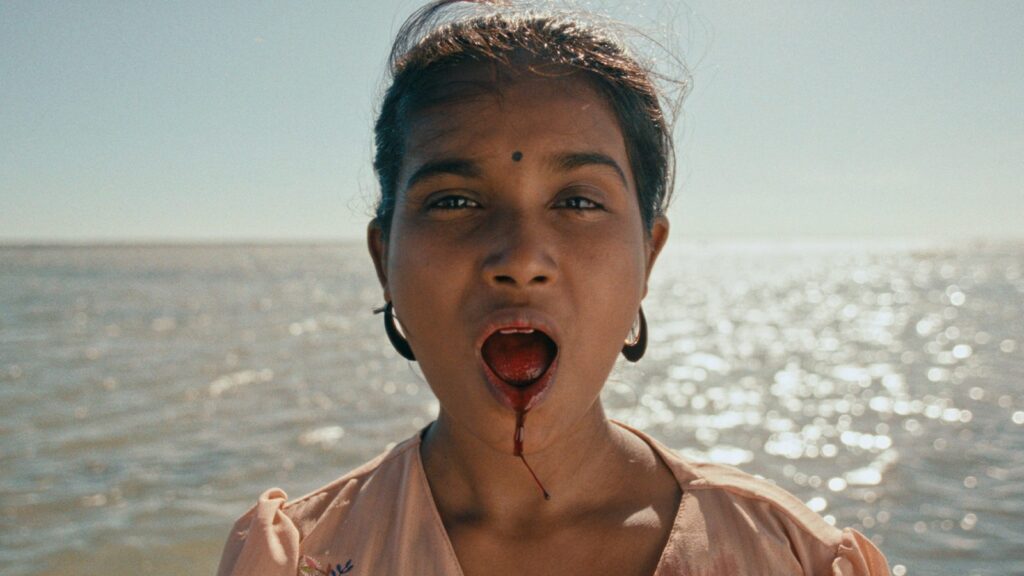Title: Your Touch Makes Others Invisible
Foreign Title:
Year: 2025
Country: Sri Lanka/USA
Language: In Tamil, Sinhala, English and Russian with English subtitles
Director and Writer: Rajee Samarasinghe
Rajee Samarasinghe’s film is an act of bearing witness. A native of Sri Lanka, the director uses religious imagery, documentary interviews and staged scenes to explore injustices that occurred near the end of the country’s civil war. Between 1983 and 2009, the insurgent Tamil Tigers fought for independence against a government dominated by the Sinhalese majority. Samarasinghe is concerned with killings and disappearances that occurred in the north—crimes against the Tamil minority, committed by Sri Lankan forces.
The film begins with a pastoral scene which slowly takes on mystical overtones; the director uses wind, foliage, animals and children to suggestive but ultimately mysterious ends. It’s a beguiling opening, and its eerie splendour is matched by what follows shortly after, particularly an aerial shot that takes in a large, grid-like rural landscape, with a solitary white car inching down the freeway amid farms and fields.
Samarasinghe’s film soon settles down into a pattern of alternation: we get drone shots, scenes of religious ritual, staged actions and interview footage. The aerial footage is impressive for a while, but eventually its power fades; the religious rites are striking, although their relation to the rest of the film is often too oblique; the same goes for the staged scenes, which usually involve children and adolescents. The testimony from grieving mothers is what hits hardest: the moral case is clear, the allegations are detailed, and the emotion is palpable.
The best scene in the movie features a display of dusty old tube TVs, with one of them playing an interview with a Sri Lankan leader Mahinda Rajapaksa in which he’s pressed on the issue of war crimes. Rajapaksa’s denials and obfuscations are weak, and he speaks with an appalling glibness. By portraying this war criminal as a ghostly presence amid the dead technology, Samarasinghe creates a moment of jet-black satire, political accusation, and mournful imagery.
Ultimately, what holds the film back are its recurring tilts away from clear communication and toward obscurity. I love thematically mysterious movies; a lot of the best ones in the last few decades have come from Asia, and I can tell that Samarasinghe has seen many of them. The problem in his case is that the mystery he strives for weakens his indictment.




